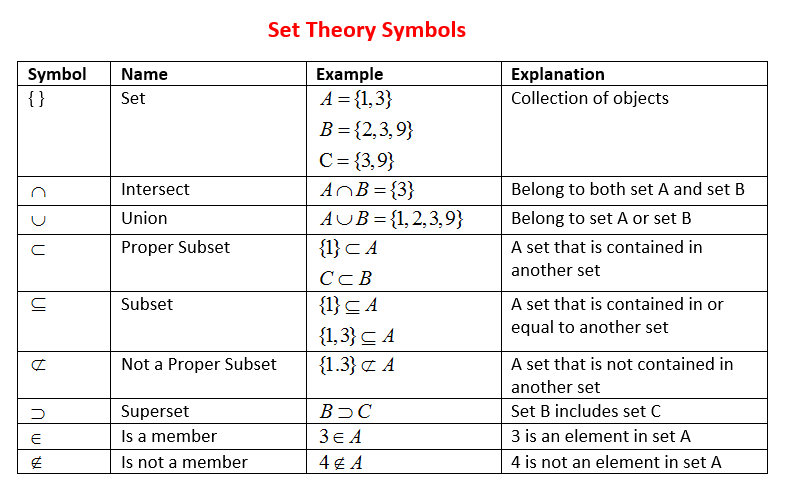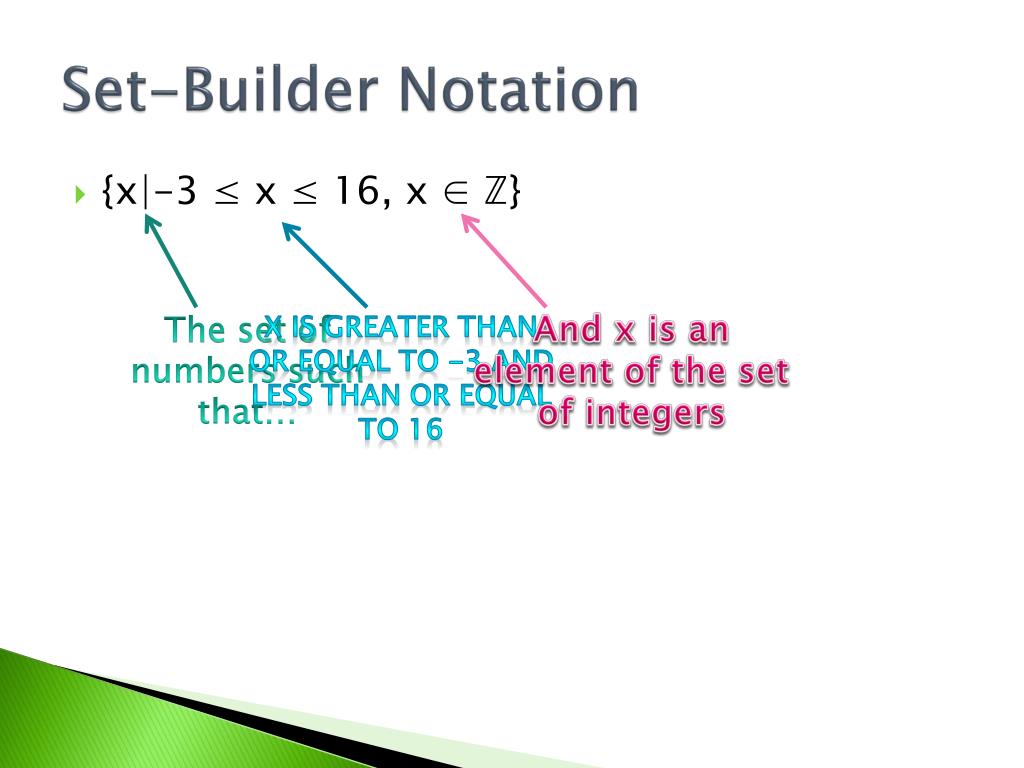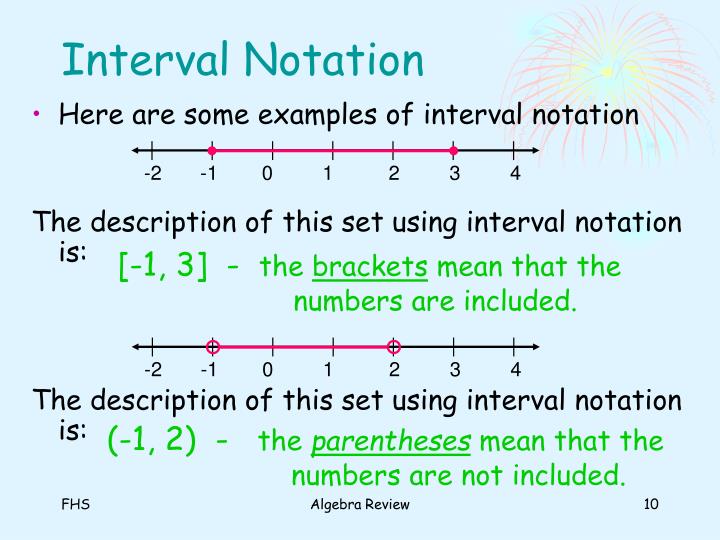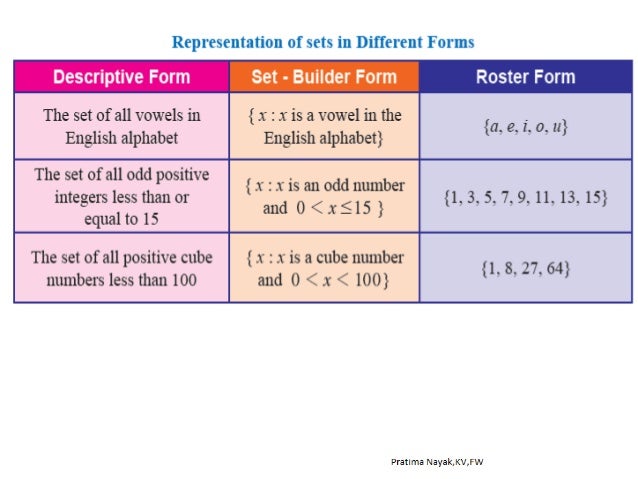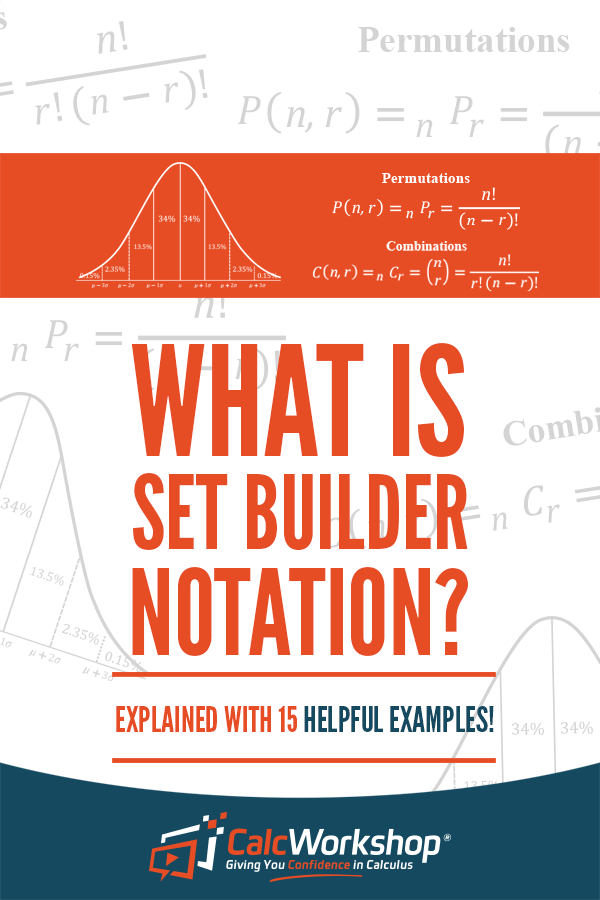There are mainly two methods that can be used to represent a set. The Listing method is also called the roster method. This method shows the list of all the elements of a set inside brackets. The elements are written only once and are separated by commas.
The contents of a set can be described by listing the elements of the set, separated by commas, inside a set of curly brackets. This way of describing a set is called roster form . This way of describing a set is called roster form. The roster notation is a simple mathematical representation of a set in mathematical form.
In this method, the elements are enumerated in a row inside the curly brackets. If the set contains more than one element, then every two elements are separated by a comma symbol. In set builder notation, we define a set by describing the properties of its elements instead of listing them. This method is especially useful when describing infinite sets. It is not actually possible to express all of them in roster form. Similarly, we don't know the last element in these types of sets.
If sets follow a pattern or have a particular sequence, we just write the first three or four elements with a continuous symbol within the curly braces. Set Y is a form that is referred to as roster notation. In this type of set notation, the elements are listed inside braces separated by commas. The three dots following the number 5 are the ellipsis, used to indicate that the sequence continues.
A method of listing the elements in a row with comma separation within curly brackets is called the roster notation. Create two proper subsets from your universal set and write them in roster notation. The first should be labeled F and contain letters from your first name, the second L and contain letters from your last name. The objects that are used to form a set are called its elements or its members.
In general, the elements of a set are written inside the curly braces and separated by commas. The name of the set is always written in capital letters. For example, the number 5 is an integer, and so it is appropriate to write \(5 \in \mathbb\). It is not appropriate, however, to write \(5 \subseteq \mathbb\) since 5 is not a set.
The difference is that 5 is an integer and is a set consisting of one element. Consequently, it is appropriate to write \(\ \subseteq \mathbb\), but it is not appropriate to write \(\ \in \mathbb\). The distinction between these two symbols is important when we discuss what is called the power set of a given set. The set of integers is represented by the letter Z.
Integers are sometimes split into 3 subsets, Z+, Z- and 0. Z+ is the set of all positive integers , while Z- is the set of all negative integers (, -3, -2, -1). Therefore, set builder notation is a method of writing sets often with an infinite number of elements. It is commonly used with rational numbers, real numbers, complex numbers, natural numbers, and many more. This notation can also be used to express sets with intervals and equations.
Each object in the set is called an element of the set. If an element x is a member of the set S, we write . If an element x is not a member of the set S, we write .
The empty set is the set that contains no elements. For sets A and B, A is called a subset of B, denoted , if every element of A is also an element of B. In sets theory, you will learn about sets and it's properties. It was developed to describe the collection of objects. You have already learned about the classification of sets here.
The set theory defines the different types of sets, symbols and operations performed. The elements in a set can be represented in a number of ways, some of which are more useful for mathematical treatment and others for general understanding. These different methods of describing a set are called set notations.
In Preview Activity \(\PageIndex\), we worked with verbal and symbolic definitions of set operations. However, it is also helpful to have a visual representation of sets. Venn diagrams are used to represent sets by circles drawn inside a rectangle. For example, Figure \(\PageIndex\) is a Venn diagram showing two sets. Set Builder Notations is the method to describe the set while describing the properties and not just listing its elements.
When there is set formation in a set builder notation then it is called comprehension, set an intention, and set abstraction. A set with no members is called an empty, or null, set, and is denoted ∅. These lessons are part of a series of Lessons On Sets. But the problem arises when we have to list elements lying inside either the small intervals or a very large set of numbers, or even an infinite set. Using roster notation does not make sense and is a very tedious method. Therefore, we use set-builder notation for such conditions.
Set builder notation is defined as a mathematical notation used to describe a set using symbols. It is used to explain elements of sets, relationships, and operations among the sets. A collection of numbers, elements that are unique can be described as a set. So far we specified the elements of sets by verbally. The roster form introduced here offers a concise way of writing down sets by listing all elements of the set. Furthermore we use ellipsis to describe the elements in a set, when we believe that the reader understands how a pattern in a list of elements continues.
In this article, we learned about sets, properties of sets, and elements of a set. Then we learned about the three methods to represent a set- Description Method, Roster or Tabular Method, and Rule or Set-Builder Method. In addition to this, we learned to convert the roster form to set-builder form and vice versa. Furthermore, we learnt the cardinality of a set. Rule Method This method involves specifying a rule or condition which can be used to decide whether an object can belong to the set.
The roster method is defined as a way to show the elements of a set by listing the elements inside of brackets. An example of the roster method is to write the set of numbers from 1 to 10 as . This is best used to represent the sets mainly with an infinite number of elements.
It is used commonly with integers, real numbers, and natural numbers. This also is used to represent the sets with intervals and equations. Students have to be very clear and learn precisely so that they can solve any problem related to the topic. Students can refer to Vedantu and learn the chapter clearly with a detailed explanation of every topic.
In this, a rule, or the formula or the statement is written within the pair of brackets so that the set is well defined. In the set builder form, all the elements of the set, must possess a single property to become the member of that set. An example of the roster method is to write the seasons as .
Set notation is used to define the elements and properties of sets using symbols. Symbols save you space when writing and describing sets. Set notation also helps us to describe different relationships between two or more sets using symbols. In Python, the set-builder's braces are replaced with square brackets, parentheses, or curly braces, giving list, generator, and set objects, respectively. Haskell replaces the set-builder's braces with square brackets and uses symbols, including the standard set-builder vertical bar.
In statement form, the well-defined descriptions of a member of a set are written and enclosed in the curly brackets. In this method, a well-defined description of the elements of a set is made. At times, the definition of elements is enclosed within the curly brackets.
Roster Set Notation In this case, the description of the common property of the elements of a set is written inside the braces. This is the simple form of a set-builder form or rule method. The method of defining a set by describing its properties rather than listing its elements is known as set builder notation. Set builder notation contains one or two variables and also defines which elements belong to the set and the elements which do not belong to the set.
The rule and the variables are separated by slash and colon. This is often used for describing infinite sets. In example 3, we used an ellipsis at the end of the list to indicate that the set goes on forever. An infinite set is a set with aninfinitenumber of elements. It is not possible to explicitly list out all the elements of an infinite set. Let's look at some more examples of finite and infinite sets.
Set builder notation is a mathematical notation that describes a set by stating all the properties that the elements in the set must satisfy. It is specifically helpful in explaining the sets containing an infinite number of elements. Mathematical objects can range from points in space to shapes, numbers, symbols, variables, other sets, and more.
Each object in a set is referred to as an element. Below are a few examples of different types of sets. Set-builder notation is a list of all of the elements in a set, separated by commas, and surrounded by French curly braces. Using the letters from your first and last name, create a universal set and write this in roster notation. Please note you must use your full university display name.
For example, if your university display name is "Megan Ryan" but you go by Meg you must use all the letters in your display name of Megan Ryan. Of any set \(A\) is the set of all subsets of \(A,\) including the empty set and \(A\) itself. Roster notation, also known as enumeration notation, defines a set by explicitly listing members between the curly brackets. This notation is regarded as the informal notation but commonly used. It can use an ellipsis to abbreviate large spans of membership in a more concise form. Many symbols in set notation are ubiquitous among fields of logical design.
For example, most equality operators have inverse inequality operators to mirror the logic expressed. Very few non-mathematicians have complete working knowledge of set notation. The elements of a set are written inside a pair of curly braces and separated by commas. Use set builder notation or the roster method to specify the set of integers that are the sum of eight consecutive integers. Use set builder notation or the roster method to specify the set of integers that are the sum of four consecutive integers. The Interval notation is a method to define a set of numbers between a lower limit and an upper limit by using end-point values.
The point also has to be remembered that the upper and lower limits may or may not be included in the set. A square bracket denotes inclusion in the set, while the brackets indicate exclusion from the set. Roster notation is a list of elements, separated by commas, enclosed in curly braces. In maths, the letter R denotes the set of all real numbers. Real numbers are the numbers that include, natural numbers, whole numbers, integers, and decimal numbers. In other words, real numbers are defined as the points on an infinitely extended line.
The Roster Method makes set notation a straightforward concept to comprehend. Therefore, some sets require to be defined by the properties that illustrate and describe their elements. This method is also called the tabulation method. When using this method, we list the elements of the set in a row between curly braces. The "things" in the set are called the "elements", and are listed inside curly braces.
You can list all even numbers between 10 and 20 inside curly braces separated by a comma. And is denoted as \(U.\) The universal set is problem specific. The sets are of different types, such as empty set, finite and infinite set, equal set, equivalent set, proper set, disjoint set, subsets, singleton set. A set is a collection of elements or numbers or objects, represented within the curly brackets . They are empty set, finite and infinite sets, proper set, equal sets, etc. Let us go through the classification of sets here.
Sets are represented as a collection of well-defined objects or elements and it does not change from person to person. The number of elements in the finite set is known as the cardinal number of a set. Using this as a starting point, you should be able to answer parts through . The term "set-roster notation" refers to the notation of just listing off all the elements one at a time, as I've done above. Sets are a powerful construct used in many mathematical, logical, and computer science-related applications.





